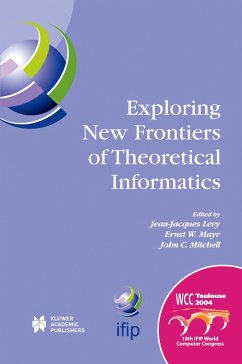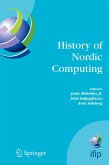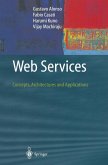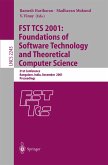Edited by Jean-Jacques Levy, Ernst W. Mayr, and John C. Mitchell
In recent years, IT application scenarios have evolved in very innovative ways. Highly distributed networks have now become a common platform for large-scale distributed programming, high bandwidth communications are inexpensive and widespread, and most of our work tools are equipped with processors enabling us to perform a multitude of tasks. In addition, mobile computing (referring specifically to wireless devices and, more broadly, to dynamically configured systems) has made it possible to exploit interaction in novel ways.
To harness the flexibility and power of these rapidly evolving, interactive systems, there is need of radically new foundational ideas and principles; there is need to develop the theoretical foundations required to design these systems and to cope with the many complex issues involved in their construction; and there is need to develop effective principles for building and analyzing such systems.
Reflecting the diverse and wide spectrum of topics and interests within the theoretical computer science community, Exploring New Frontiers of Theoretical Informatics is presented in two distinct but interrelated tracks:
-Algorithms, Complexity and Models of Computation, -Logic, Semantics, Specification and Verification.
Exploring New Frontiers of Theoretical Informatics contains 46 original and significant contributions addressing these foundational questions, as well as four papers by outstanding invited speakers. These papers were presented at the 3rd IFIP International Conference on Theoretical Computer Science (TCS 2004), which was held in conjunction with the 18th World Computer Congress in Toulouse, France in August 2004 and sponsored by the International Federation for Information Processing (IFIP).
Dieser Download kann aus rechtlichen Gründen nur mit Rechnungsadresse in A, B, BG, CY, CZ, D, DK, EW, E, FIN, F, GR, HR, H, IRL, I, LT, L, LR, M, NL, PL, P, R, S, SLO, SK ausgeliefert werden.
Hinweis: Dieser Artikel kann nur an eine deutsche Lieferadresse ausgeliefert werden.









